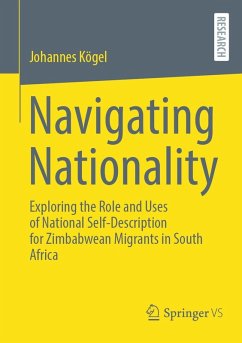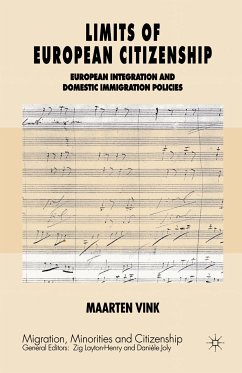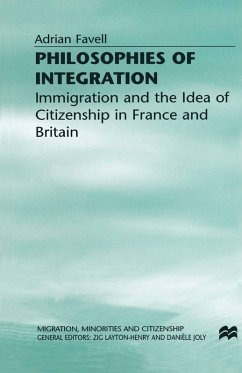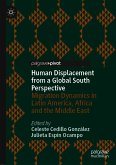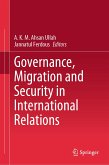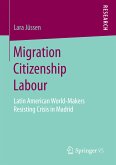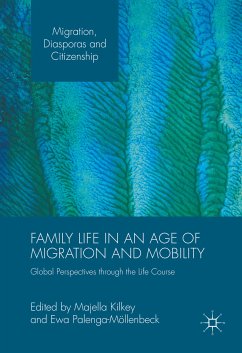In recounting their migration journey, references to nationality pervade the narratives of Zimbabweans in South Africa. Given the challenges many migrants confront based on their nationality, this presents a seeming paradox. This qualitative interview study, conducted with Zimbabwean migrants in two areas of Cape Town-Observatory and Dunoon-aims to elucidate the nuances of national self-descriptions in a demanding environment. Identifying as Zimbabwean serves as a sanctuary and a retreat, where alternative identifications often prove transient; embracing Zimbabweanness fosters an affirmative and positive self-perception, surpassing the limitations of other collective self-descriptions. Rather than pre-emptively characterizing a nationalist demeanour, the articulation of national self-description emerges as a strategic tool to navigate experiences of hostility and discrimination, while also asserting legitimate claims to equal opportunities. In this way, nationality takes a trajectory that diverges from conventional notions of nationality (and the ones of the nation-state or citizenship) as per Northern theory, contributing to alternative conceptualizations within the framework of the Global South.
About the author
Johannes Kögel studied philosophy and sociology in Munich and Cape Town. He currently works as a research associate at the University of Munich (LMU München). He has conducted social research on diverse topics such as brain-computer interfaces, xenotransplantation, and migration in South Africa.
Dieser Download kann aus rechtlichen Gründen nur mit Rechnungsadresse in A, B, BG, CY, CZ, D, DK, EW, E, FIN, F, GR, HR, H, IRL, I, LT, L, LR, M, NL, PL, P, R, S, SLO, SK ausgeliefert werden.
Es gelten unsere Allgemeinen Geschäftsbedingungen: www.buecher.de/agb
Impressum
www.buecher.de ist ein Internetauftritt der buecher.de internetstores GmbH
Geschäftsführung: Monica Sawhney | Roland Kölbl | Günter Hilger
Sitz der Gesellschaft: Batheyer Straße 115 - 117, 58099 Hagen
Postanschrift: Bürgermeister-Wegele-Str. 12, 86167 Augsburg
Amtsgericht Hagen HRB 13257
Steuernummer: 321/5800/1497
USt-IdNr: DE450055826
Bitte wählen Sie Ihr Anliegen aus.
Rechnungen
Retourenschein anfordern
Bestellstatus
Storno

